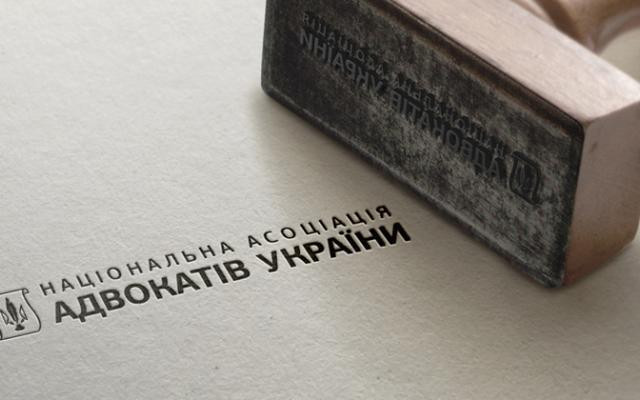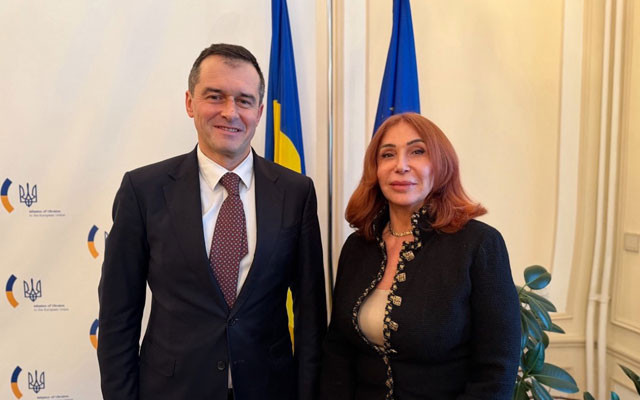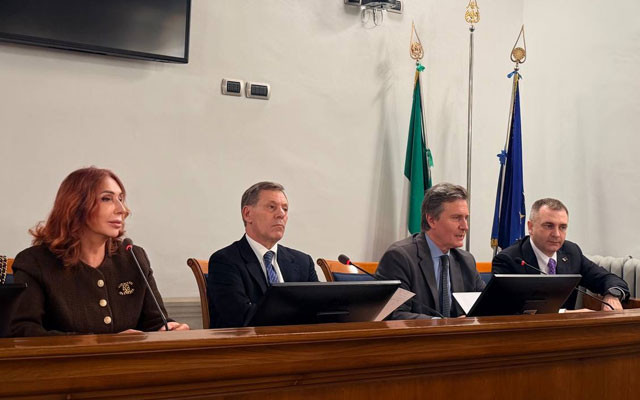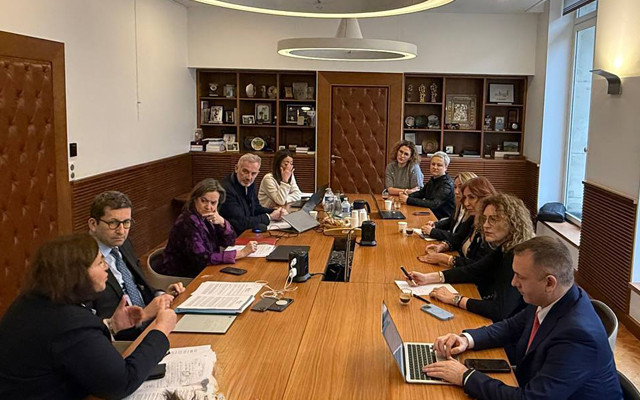Whose land: lawyers figured out what to do with the «inheritance» of the CAE



The activities of enterprises using CAE land are currently fraught with risks due to imperfect legislation and its interpretation. The UNBA discussed whether the right to land should be retained by the successors of the CAEs or whether these lands should be transferred to communal ownership.
A roundtable discussion on the topic «Land of Collective Agricultural Enterprises» was held on 12 September at the initiative of the UNBA Committee on Agricultural, Land and Environmental Law.
The speakers at the event were Viktor Kobylianskyi, Chair of the Committee, Dmytro Navrotskyi, Deputy Chairman, Jan Biloholovyi, Committee members, Vladyslav Kononov, scientist, and Vitalii Urkevych, Supreme Court judge.
V. Kobylianskyi drew attention to the fact that the vast majority of CAEs (about 12,000) from the moment the Land Code came into force (01 January 2002) and until the entry into force of Law No. 2498-VIII «On Amendments to Certain Legislative Acts of Ukraine on Resolving the Issue of Collective Land Ownership, Improving the Rules of Land Use in Agricultural Land Massifs, Preventing Raiding and Stimulating Irrigation in Ukraine» (01 January 2019) were not liquidated but reorganised. This was a change of legal form (transformation), which did not result in the termination of the legal entity. Accordingly, such legal entities (business entities, cooperatives, private enterprises) retained all rights to land.
He noted that Ukrainian legislation explicitly provided for the possibility of reforming CAEs into any business entity based on private property, including private enterprises and farms. Therefore, the discrepancy between the number of members of a legal entity and the number of members of the CAE is not a ground for denying the succession of such a legal entity to the CAE.
The successors of the CAEs did not renounce their ownership of the land, and no agreements on the transfer of ownership were concluded or notarised. Accordingly, there are no grounds to believe that the unallocated land has become communal property.
At the same time, the provisions of paragraph 21 of the Transitional Provisions of the Land Code of Ukraine do not apply to the vast majority of the successors to the CAE, since there was no termination of the CAE, and the ownership of the relevant land arose before this paragraph came into force.
Y. Biloholovyi spoke about the practice of the Supreme Court regarding the status of collective land during its transformation. He proposed to hold a joint event with the Supreme Court judges to study collective ownership issues in more depth.
Dmytro Navrotskyi focused on the issues of the right of permanent use of land, which was held by the CAE and passed to its successors. The lawyer revealed the historical aspects of the reform of the collective farms, the preservation of the right of permanent use of land by the successors and identified the signs of succession. He also analysed the existing case law and focused on the position of the Supreme Court's Grand Chamber, which is most often used by courts when considering this category of cases. In conclusion, the speaker noted the need to clarify all the signs of succession in each particular case, taking into account the legislation in force at the time and the evidence provided in the case.
The documents defining the scope of legal succession are not important in reorganisation by way of transformation of a CAE, Kononov believes. After all, this type of reorganisation transfers all property rights and obligations of the SPE. This primarily concerns the transfer (distribution) balance sheets, which are often required by the courts to confirm the succession. At the same time, at the time of the adoption and implementation of the agrarian reform (Presidential Decree No. 1529/99 of 03.12.99 «On urgent measures to accelerate the reform of the agrarian sector of the economy»), the form of the balance sheet as an accounting document did not provide for the possibility of accounting for collectively owned land plots, and there was no valuation of such land plots. The above calls into question the conclusions of the courts regarding the mandatory availability of such documents in the case of the CAEs during their transformation, the scientist believes.
The speaker also added that there were no restrictions on registration actions during the transformation of a CAE or any other enterprise either at the time of the CAE reorganisation or later, including today. In other words, registration actions related to the change of the organisational and legal form, or capital, or address, do not prohibit other registration actions, including the change of participants.
The issue of preservation and registration of rights to land by the legal successors of the CAEs was also addressed by the Constitutional Court. Thus, according to the decision No. 5-rp/2005 of 22.09.2005, the provisions of paragraph 6 of Section X «Transitional Provisions» of the Land Code of Ukraine and paragraph 6 of the Verkhovna Rada Resolution «On Land Reform» regarding the loss by citizens, enterprises, institutions and organisations of the previously granted right to use land after the expiry of the term of registration of ownership or the right to use land, are declared unconstitutional and cease to be effective from the date of the Constitutional Court's decision.
Similar in terms of the principle of property rights protection is the decision of the Constitutional Court No. 7-р(II)/2021 of 20 October 2021 in the case of the constitutional complaint of the private joint-stock company Chernihivoblbud regarding the compliance of subparagraph b of paragraph 1 of part three of Article 14 of the Law «On Ensuring the Housing Rights of Residents of Dormitories» with the Constitution of Ukraine (constitutionality).
Popular news

Self-government
The BCU demands a review of the composition of the government working group on reforming the advocacy profession
The President of the UNBA, BCU Lidiya Izovitova, appealed to the Cabinet of Ministers of Ukraine to review the composition of the working group on improving legislation in the field of advocacy and legal practice.

Discussion
Why lowering the age of marriage lacks legal logic
Although until 2012 there was a provision in family law that allowed children to marry from the age of 14 under certain circumstances, its return to Ukrainian law would contradict international obligations and the logic of criminal law.

European integration
Open dialogue between the UNBA and the European Commission on the path to EU
The Ukrainian National Bar Association held a working meeting in Brussels with Mr Wolfgang Nozar, Head of Unit for Governance, Rule of Law and Financial Assistance, Directorate-General for Enlargement and Eastern Neighbourhood (DG ENEST), European Commission.

Self-government
A report on Ukrainian advocacy was presented in the European Parliament
Can a shadow report on advocacy replace the political framework of the Roadmap on the rule of law with demands for the restructuring of self-government? Where is the line between accountability and the seizure of institutions? And how can we respond to narratives with data rather than impressions?

European integration
UNBA and Ukraine's representation to the EU have synchronized their priorities
On February 5, in Brussels, the President of the UNBA, BCU Lidiya Izovitova held a working meeting with the Ambassador Extraordinary and Plenipotentiary of Ukraine, Representative of Ukraine to the European Union Vsevolod Chentsov.

Guarantees of the practice of law
Proceedings opened following attack on advocate in Dnipro
The Committee for the protection of advocates' rights and guarantees of legal practice of the UNBA appealed to law enforcement agencies in connection with an advocate's report of an attack while performing his professional duties. The information was entered into the Unified Register of Pre-trial Investigations and a pre-trial investigation was initiated.

Interaction
«With us — to Europe»: Italian advocacy supports UNBA initiatives
On January 30, a meeting was held in Rome between a delegation from the Ukrainian National Bar Association and the National Bar Council of Italy (Consiglio Nazionale Forense, CNF) on the standards and practices of the legal profession and their significance for Ukraine's European integration process.

Interaction
France confirms cooperation with UNBA on reforms in the field of the rule of law
On January 29, a working meeting between representatives of the Ukrainian National Bar Association and the French National Bar Council (Conseil National des Barreaux, CNB) took place in Paris.
Publications

Volodymyr Matsko Extradition as a systemic form of rights violations

Victoria Yakusha, Law and Business The anti-corruption vertical cannot «take care» of the Bar as an institution, - acting head of the HQDCB

Censor.net Protecting advocates – protecting justice: addressing concerns about the new law

Ihor Kolesnykov A BRIEF SUMMARY REGARDING THE APPLICATION OF THE ORDER ON EXTENDED CONFISCATION IN LATVIA REGARDING FINANCIAL ASSETS OF…

Valentyn Gvozdiy WORKING IN A WAR ZONE

Lydia Izovitova Formula of perfection

Sergiy Vylkov Our judicial system is so built that courts do not trust advocates

Iryna Vasylyk Advocacy in the proclamation of Independence of Ukraine
